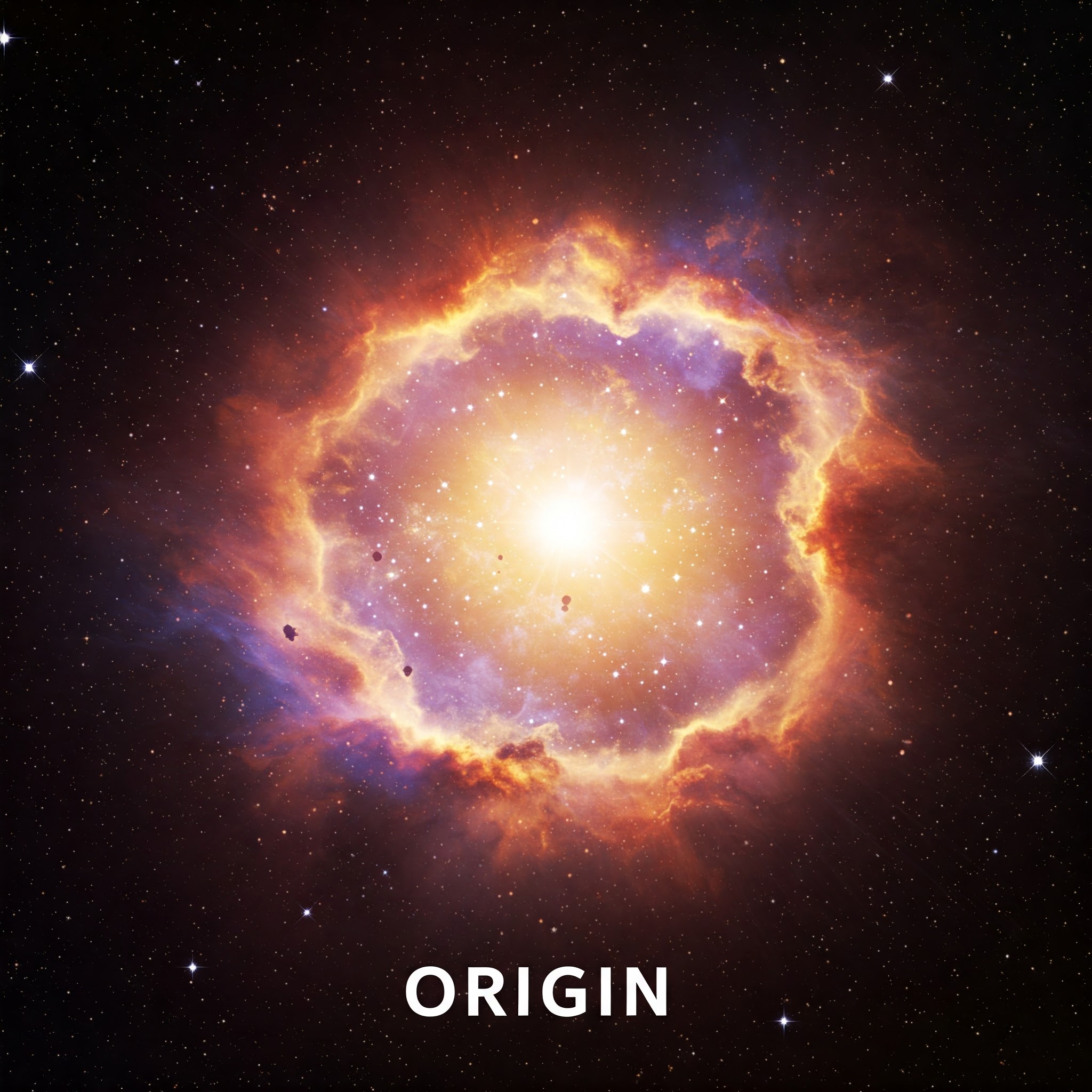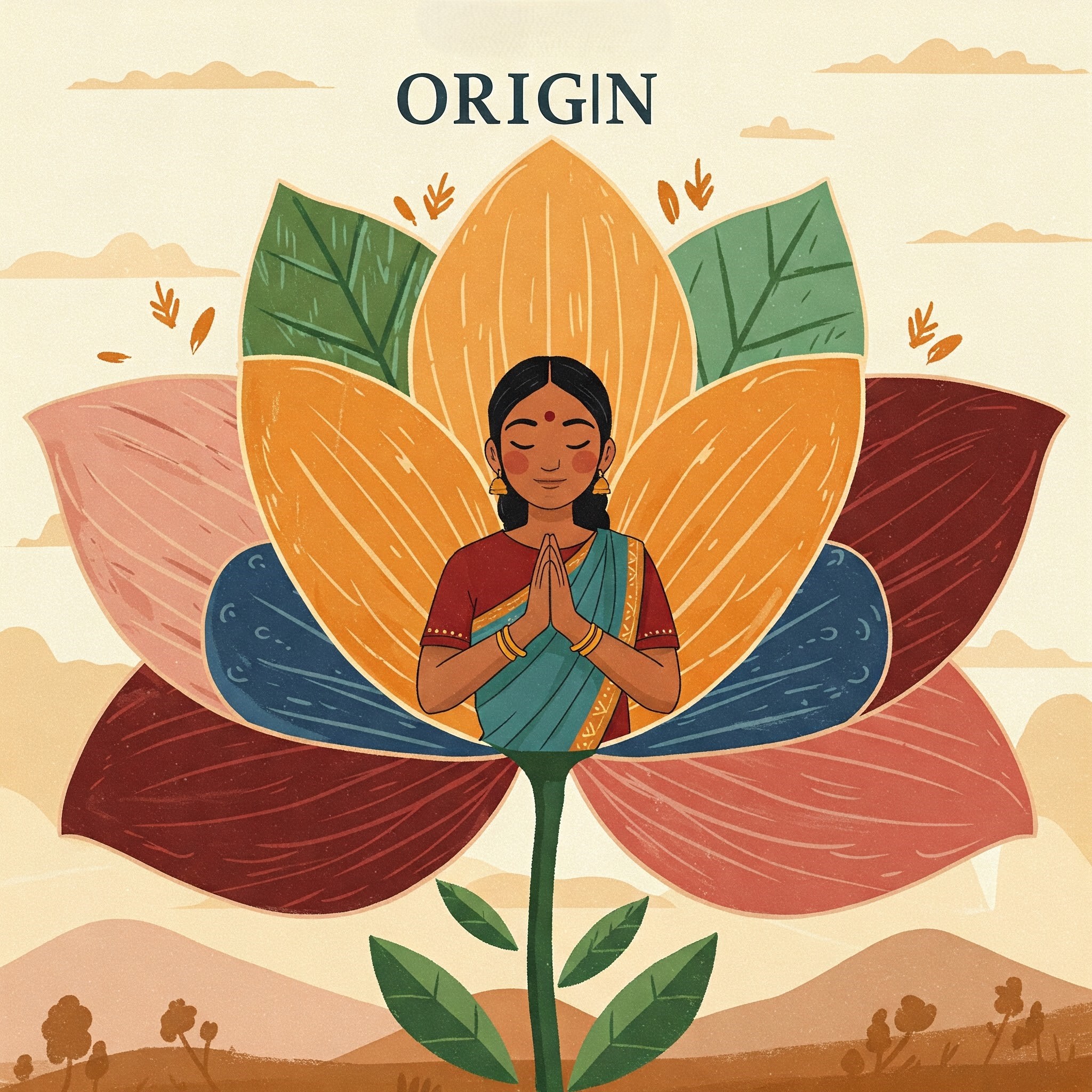Origin
Definition
Origin is a noun that refers to the point or place where something begins, arises, or is derived. It can also signify a person’s ancestry or background.
Parts of Speech
- Noun
Pronunciation
American English
- IPA Pronunciation: /ˈɔːr.ɪ.dʒɪn/, /ˈɑːr.ɪ.dʒɪn/
- Respelling: OR-ih-jin, AR-ih-jin
British English
- IPA Pronunciation: /ˈɒr.ɪ.dʒɪn/
- Respelling: OR-ih-jin
Etymology
The word "origin" comes from the Latin "origo," meaning "a beginning, source, or birth." It is derived from "oriri," meaning "to rise or arise." The term entered Middle English through Old French, retaining its meaning of beginning or source.
Derivatives
- Original (adjective, noun)
- Originate (verb)
- Originator (noun)
- Originally (adverb)
- Originative (adjective, rare)
Synonyms
- Source
- Beginning
- Root
Antonyms
- End
- Conclusion
- Termination
Usage
The term "origin" is used in diverse contexts, from science to personal identity. For example: "The origin of the river is in the mountains," or "Her family’s origin can be traced back to Italy."
Related Terms
- Genesis: The origin or mode of formation of something.
- Ancestry: A person’s family or ethnic descent.
- Source: The starting point of a stream or supply.
Detailed Definitions
Noun
- The point or place where something begins: Refers to the starting point of an event, object, or idea.
- Example: "The origin of the universe is a topic of scientific inquiry."
- A person’s ancestry or background: Refers to the ethnic or familial roots of an individual.
- Example: "She is proud of her cultural origin."
- A fixed point in geometry: Refers to the starting point in a coordinate system, typically (0, 0) in two dimensions.
- Example: "The graph originates at the origin."
origin



🇨🇳 Mandarin
- 起源 (Qǐyuán) - Origin, source
- IPA: /t͡ɕʰi˥˩.ɥɛn˧˥/
- English respelling: chi-yuen
- 根源 (Gēnyuán) - Root, origin
- IPA: /kən˥˩.ɥɛn˧˥/
- English respelling: gen-yuen
🇮🇳 Hindi
- मूल (Mool) - Origin, root
- IPA: /muːl/
- English respelling: mool
- उत्पत्ति (Utpatti) - Origin, creation
- IPA: /ʊt̪pət̪ːiː/
- English respelling: ut-pat-tee
🇪🇸 Spanish
- Origen - Origin
- IPA: /oˈɾixen/
- English respelling: o-ri-hen
- Procedencia - Origin, provenance
- IPA: /proθeˈðenθja/
- English respelling: pro-the-den-thia
🇫🇷 French
- Origine - Origin
- IPA: /ɔʁiʒin/
- English respelling: or-i-jeen
- Provenance - Origin, provenance
- IPA: /pʁɔvənɑ̃s/
- English respelling: pro-ve-nans
🇸🇦 Modern Standard Arabic
- أصل (Asl) - Origin, root
- IPA: /ʔʊsl/
- English respelling: oos-l
- مصدر (Masdar) - Origin, source
- IPA: /ˈmæsdær/
- English respelling: mas-dar
🇧🇩 Bengali
- উৎপত্তি (Utpotti) - Origin, creation
- IPA: /ut̪pot̪ːi/
- English respelling: ut-pot-tee
- মূল (Mul) - Origin, root
- IPA: /mul/
- English respelling: mool
🇷🇺 Russian
- Происхождение (Proiskhozhdeniye) - Origin
- IPA: /prɐɪsˈxodʑːɪnʲɪjə/
- English respelling: pro-is-kho-zhe-ni-ye
- Исток (Istok) - Origin, source
- IPA: /ɪˈstok/
- English respelling: is-tok
🇵🇹 Portuguese
- Origem - Origin
- IPA: /ɔˈʁiʒẽj/
- English respelling: o-ri-zheng
- Procedência - Origin, provenance
- IPA: /pɾo̞sɨˈdẽ̞sɐ/
- English respelling: pro-se-den-sa
🇮🇩 Indonesian
- Asal - Origin
- IPA: /asal/
- English respelling: a-sal
- Sumber - Origin, source
- IPA: /sumbər/
- English respelling: sum-ber
🇩🇪 German
- Herkunft - Origin
- IPA: /ˈhɛʁkʊnt/
- English respelling: her-kunft
- Ursprung - Origin, source
- IPA: /ˈʊʁʃpʁʊŋk/
- English respelling: ur-shprung
🇯🇵 Japanese
- 起源 (Kigen) - Origin, source
- IPA: /kʲiɡẽɴ/
- English respelling: ki-gen
- 元 (Moto) - Origin, source
- IPA: /moto/
- English respelling: mo-to
🇻🇳 Vietnamese
- Nguồn gốc - Origin
- IPA: /ŋwəːn˧˩ˀ ɣok˦ˀ˥/
- English respelling: nguon goc
- Gốc - Origin, root
- IPA: /ɣok˦ˀ˥/
- English respelling: goc
🇰🇷 Korean
- 기원 (Giwon) - Origin
- IPA: /ɡi.won/
- English respelling: gi-won
- 원점 (Wonjeom) - Origin, starting point
- IPA: /wʌn.dʑʌm/
- English respelling: won-jeom
🇹🇷 Turkish
- Köken - Origin
- IPA: /cøken/
- English respelling: co-ken
- Menşei - Origin, provenance
- IPA: /menʃei/
- English respelling: men-shei
🇵🇰 Urdu
- آغاز (Aaghaz) - Origin, beginning
- IPA: /ɑː.ɣɑːz/
- English respelling: aa-ghaaz
- مبدأ (Mabda) - Origin, principle
- IPA: /məbˈd̪aː/
- English respelling: mub-daa





